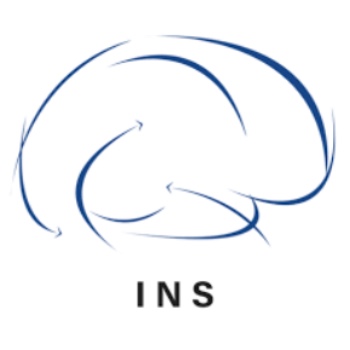[et_pb_section fb_built=”1″ use_custom_gutter=”on” specialty=”on” parallax_method_1=”off” parallax_method_2=”off” module_class=”m-special-section-modifier et_pb_specialty_fullwidth” _builder_version=”3.22″ inner_width=”89%” inner_width_tablet=”80%” inner_width_phone=”” inner_width_last_edited=”on|desktop” inner_max_width=”89%” inner_max_width_tablet=”80%” inner_max_width_phone=”” inner_max_width_last_edited=”on|desktop” custom_padding=”|||” transparent_background=”off” make_fullwidth=”on”][et_pb_column type=”3_4″ specialty_columns=”3″ _builder_version=”3.25″ custom_padding=”|||” custom_padding__hover=”|||”][et_pb_row_inner admin_label=”Row” _builder_version=”3.25″][et_pb_column_inner saved_specialty_column_type=”3_4″ _builder_version=”3.25″ custom_padding=”|||” custom_padding__hover=”|||”][et_pb_text admin_label=”Post content” _builder_version=”4.4.5″ background_size=”initial” background_position=”top_left” background_repeat=”repeat” module_alignment=”left” hover_enabled=”0″ text_font_size_tablet=”15px” text_font_size_phone=”14px” text_font_size_last_edited=”on|desktop” use_border_color=”off”]
February is American Heart Month. And while health conditions like high blood pressure, high cholesterol, diabetes and obesity account for most cardiovascular problems, do you know your brain health is very much connected to your heart health?
Brain-Heart
The brain controls the heart through the autonomic nervous system, which is a control system comprised of multi-synaptic pathways that acts largely automatically and regulates bodily functions such as heart rate, digestion and respiratory rate. The inter-organ crosstalk—the ability for the brain to send signals to the heart and vice versa—means that the heart can be profoundly altered by cardiac autonomic signals, such as those associated with stress, physical activity and sleep.
In fact, emotional stress is a key risk factor in heart attacks and strokes. According to the Interheart study, emotional stress accounts for about one-third of heart attacks and strokes. The study is comprised of 25,000 volunteers spanning 52 countries. In another more recent study that monitored more than 135,000 Swedish men and women with stress-related disorders, it finds that stress-related disorders strongly increase the risk (by more than 60% within the first year of diagnosis) for multiple types of cardiovascular disease.
Stress
What happens to the heart when it is under stress? The flight-or-flight response jumps into full gear during stressful situations and releases biochemical compounds such as adrenaline, which increases heart rate and blood pressure. Sudden stress can trigger Takotsubo cardiomyopathy, or a broken heart syndrome, a condition that feels like a heart attack. Symptoms include chest pain and shortness of breath. The heart may or may not fully recover after such temporary heart failure.
While more research is needed to determine how stress contributes to heart disease, ineffectively managed external stressors can harm heart health. Moreover, stress also impacts the brain. Studies in both animals and humans show that stress can affect how the brain function, including memory, mood and anxiety.
Wellbeing Any-Wear
In other words, improving emotional health starts from the brain. This is why we are excited to introduce our revolutionary clothing-form photobiomodulation (PBM) wearable for brain health: Niraxx Brain Pacer. The device works by shining safe near-infrared light to the forehead, activating the brain’s natural restorative and regenerative processes. It enhances brain health in two significant ways:
- Increased Brain Metabolism
Neurons convert light energy into adenosine triphosphate (ATP), also known as the universal every currency in living cells. The brain uses more energy than any other organ in the body, so proper brain energy metabolism is important to support the best brain performance. - Decreased Neuroinflammation
Neuroinflammation causes neuron death and can also contribute to brain degenerative disorders. Reduced inflammation means better neuroprotection.
The effective management of daily stressors is important for good heart and brain health. Visit our newsroom to learn about our latest clinical trials and discover how you can take control of your wellbeing beyond good nutrition and regular physical exercise. Recharge your mind, anytime, any-wear!
Sources
Du F, et al. (2008). Tightly coupled brain activity and cerebral ATP metabolic rate. PNAS, 105 (17), 6409-6414.
Silvani A, Calandra-Buonaura G, Dampney RAL, Cortelli P. (2016). Brain-heart interactions: physiology and clinical implications. Philosophical Transactions of the Royal Society A, 374:20150181.
Song H, et al. (2019). Stress related disorders and risk of cardiovascular disease: population based, sibling controlled cohort study. BMJ, 365.
Yusuf S, et al. (2004). Effect of potentially modifiable risk factors associated with myocardial infarction in 52 countries (the INTERHEART stud): case-control study. Lancet, 11-17, 364(9438):937-52.
[/et_pb_text][et_pb_post_nav in_same_term=”off” _builder_version=”4.4.2″ title_text_color=”#000000″ use_border_color=”off” border_color=”#ffffff” border_style=”solid” hide_prev=”off” hide_next=”off”]
[/et_pb_post_nav][/et_pb_column_inner][/et_pb_row_inner][/et_pb_column][et_pb_column type=”1_4″ _builder_version=”3.25″ custom_padding=”|||” custom_padding__hover=”|||”][et_pb_sidebar area=”custom-sidebar-1″ _builder_version=”3.17.6″]
[/et_pb_sidebar][/et_pb_column][/et_pb_section]











